
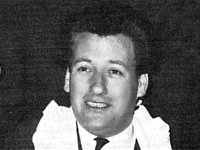

|
 |
|
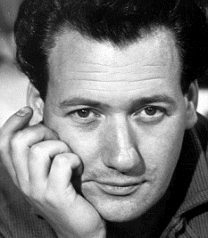 |
Keith
Fordyce Marriott was born on October 15th 1928 in Lincoln, attended Lincoln
School and, in 1946, he won the Lincolnshire Junior Tennis Championship
before undertaking his national service in Germany with the Royal Air Force.
It was in Germany that he first became involved in radio broadcasting, working
with Cliff Michelmore (his commanding officer) and Raymond Baxter as an
announcer and producer for the British Forces Network (later known as BFBS)
in Hamburg. On leaving the forces he attended Emmanuel College, Cambridge,
where he read Law. In 1951-52 he was president of the Cambridge University Law Society and took an active part in sports such as squash, football, tennis and rowing. He also founded and edited Light Blue, the university sports magazine. On graduating from Cambridge he occasionally worked for the BBC as a television football commentator under the name Keith Marriott, his first broadcast being on the Leyton v Hereford match on 22nd November 1952. He also assisted on broadcasts on cricket, motorcycle racing and tennis. A comment on the BBC's files of that time informs us that "his voice lacked crispness". In August 1955, as Keith Fordyce, he became the youngest presenter of the popular morning radio show Housewives' Choice on the Light Programme, where his presentation assessment had apparently improved to "professionally-modulated, virile voice and not too smooth; but no strong character, no indication of extra entertainment potential". In 1955 he also contested a municipal election on behalf of the Conservative party and actually won a seat on Wimbledon Council but, shortly afterwards, he was to join Radio Luxembourg as a staff announcer where he stayed for three years. During this period he presented their weekly Top Twenty programme and, in 1957, introduced the 'Power Play' to Britain by choosing, along with his fellow presenters Barry Aldis, David Gell and Don Moss, new record releases that would be featured for the entire week. He eventually became their Chief Announcer but returned to the UK in 1958, although he continued to provide pre-taped shows for transmission by the station. As a journalist, he wrote for the New Musical Express paper and two records by relative 'unknowns' that he correctly tipped for the No.1 spot were "Diana" by Paul Anka in 1957 and "When" by the Kalin Twins the following year. He was offered a break into regional television with Westward Television's quiz show, Treasure Hunt, which was obviously very popular. Contestants were required to answer various questions and then press a button, when the accumulated amount of their winnings would be shown. If a 'key' symbol was displayed, Keith would announce 'It's the Golden Key!' which became a local catchphrase during the show's 14 year run. Fordyce also appeared as a panel member in the 1959 television game show For Love or Money before, in 1960, becoming a compere on Jack Good's short-lived ITV music show Wham!, that featured acts such as Billy Fury, Little Tony, Dickie Pride and Joe Brown performing in the studio. With his personal profile in the ascendant he even appeared as himself in the comedy film Dentist on the Job (1961). On radio, he hosted the Sunday morning radio show Easy Beat and, in 1961, was offered the chance to make his first network appearance on television, becoming the main host of Thank Your Lucky Stars, ITV's rival to BBC's Juke Box Jury. |
|
TYLS featured pop stars of the day miming to their latest hits and a segment
bearing a remarkable resemblance to Juke Box Jury called 'Spin-A-Disc' where
a panel of celebrities and teenagers passed comment and verdicts on recent
record releases. It was in 1962, during one of these segments, that the
programme 'discovered' a teenage office clerk with a broad Black Country
accent called Janice
Nicholls. Her personality, enthusiasm and still-remembered catchphrase
verdict "Oi'll give it foive" elevated her to a cult television status.
In January 1963 The Beatles made their first network television appearance
on the show where they performed their hit Please Please Me.
In general, Keith didn't make personal comments about the music or artists, but memorably commented on one show that he thought the British singers Craig Douglas, Mark Wynter and Jimmy Justice were all better than American star Ricky Nelson. On Tuesday 9th April 1963 he interviewed The Beatles for the BBC Light Programme's Pop Inn programme, a session that was transmitted live from the BBC Paris Studio and one of many contacts he was to have with them during the 1960s, including being the presenter of Granada Television's 1966 tribute The Music Of Lennon And McCartney. Later in 1963 Fordyce transferred to AR where, on 9th August, he hosted the first edition of Ready, Steady, Go!, another TV pop show that was broadcast nationally. It was produced by Associated Rediffusion, the weekday ITV contractor for London, and it was thought that his presence and experience would help his more youthful co-presenters Cathy McGowan and Michael Aldred. The show, with the iconic tag line 'The Weekend Starts Here', was transmitted live from TV House in Kingsway, London, in a 30 minute slot beginning at 7pm on Friday evenings with a studio audience of around 200 teenagers and was probably the best-known of several regional and national TV pop shows that laid the foundations for the BBC's Top of The Pops programme. Despite his pedigree, Keith was viewed by some to be a curious choice as main host for a pop programme aimed at teenagers being, at 35 years old, comparatively decrepit. However, the combination of live music performances and artist interviews conducted by the smooth-talking Mr. Fordyce, assisted by the almost obligatory token teenager 19-year-old Cathy McGowan, resulted in what George Melly was to describe as "a tremor of pubescent excitement from Land's End to John O'Groats". Although selected on the strength of his interviewing skills, there were occasional 'bloopers' such as the occasion when he asked The Beatles, who were actually topping the bill, if they thought they had a future. Billy Hatton, of the Mersey beat group The Fourmost, was to comment: "Keith Fordyce may have been much more experienced than Cathy McGowan and Michael Aldred, but at times you didn't think so. When he interviewed The Beach Boys he asked them if surfing was a music or a sport and they looked at each other as if to say, 'Who is this guy?' It was a difficult show to manage and the audience could be unruly. When we were singing 'Baby I Need Your Loving', a girl grabbed my b*lls. Fortunately the camera was on my face but you could see the sudden change in my expression." |
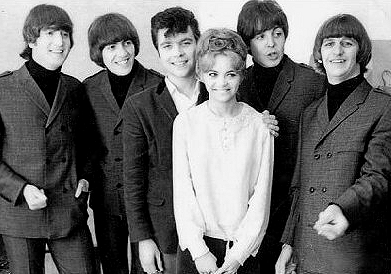 |
| Despite
this, Keith Fordyce displayed his prowess as an unflappable host on several
occasions, holding things together during the production mishaps that often
plagued live broadcasts. "They were such exciting shows," Fordyce commented.
"We never knew what could happen".
What is probably the most famous disaster occurred when Marianne Faithfull
was due to walk down a spiral staircase lip syncing to her record "Blowin'
in the Wind", but the wrong soundtrack was cued and the audience was treated
to The Kinks' "All Day and All of the Night". The cameras were rapidly switched
to Keith Fordyce to ad-lib his way out of the situation and save the day.
One of his less-preferred functions was to preside over the weekly 'mime' competition, but even this was probably preferable to being the 'straight man' in the only UK series starring Groucho Marx in 1965. The quiz show was very poorly received by British viewers and was dropped from the schedule after only eleven weeks. Over its three year lifespan Ready Steady Go! featured all of the leading pop artists of the time including Stevie Wonder, Little Richard, The Beatles and The Rolling Stones of whom Keith latterly said "'They've surprised me with their durability. I don' t think their songs have had the lasting quality of The Beatles". It had become the national showcase for trends in youth culture, fashion, dance and modern slang as well as music. Fordyce left the show at the end of 1965 but the programme continued until December 1966 before being getting axed despite its popularity and cult status. Throughout the Sixties and Seventies Keith Fordyce continued to host programmes that included variety shows, quizzes and award shows on both television and radio, including the iconic Come Dancing. He provided commentary for the BBC2's first colour test transmission in 1968, the first men's tennis singles final of the 'Open' era from Wimbledon and the 1970 Miss World contest, co-presenting with Bob Hope. Keith Fordyce presented several series on gardening for Westward Television and eventually moved to the region himself 1969. While passing a disused Midlands airport in 1971, Fordyce spotted an old de Havilland Dragon Rapide aircraft rusting away on the site and, being a qualified pilot and aviation enthusiast, he decided to recover and restore it at his home. Over a period of time he added other aircraft to his collection that led him to set up the Torbay Aircraft Museum near Paignton, one of only three self-supporting aircraft museums in the country and of which he was curator until its closure 17 years later. |
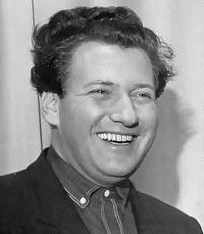 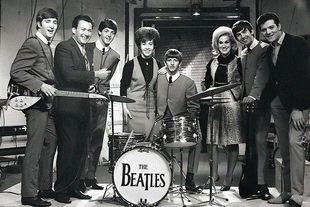
|
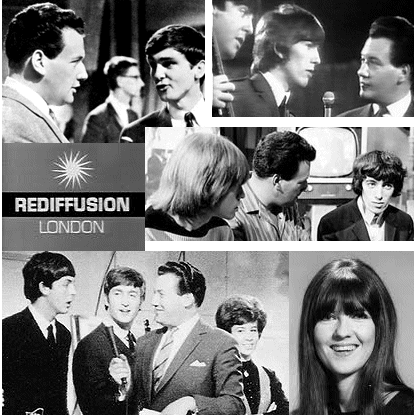 Keith Fordyce 1928 - 2011 |
Meanwhile,
he continued to work for network radio with the BBC. From 1969 until 1974
he presented Late Night Extra on Radio 2 and was also quizmaster on Radio
2's Town and Country Quiz and Support Your Local.A further television 'host'
role was on the Kitchen Garden show from 1976 to 1979. This was a Thames
television production on self-sufficiency combining gardening and cookery
where he advised on how to grow your own food and his co-presenter, Claire
Rayner, demonstrated how to prepare and cook it. Fordyce became what he was to call "an avuncular anchorman" on radio shows such as Easy Beat, Saturday Club and, on 12th February 1983, he was the first presenter of Radio 2's Sounds of the '60s. Keith Fordyce - Sounds of The Sixties .wav He made a brief return to Radio Luxembourg for 6 months in 1983 after the death of Barry Aldis and also hosted shows on the local radio stations DevonAir (of which he was a founding board member) and BBC Radio Devon. He continued to host Radio 2's Beat the Record programme into the early 1990s. This was a gentle musical show that entertained us for half an hour on a Saturday evening for many years where he would play a light orchestral tune for about a minute while inviting callers to identify it. Should no-one come up with the correct answer before the end of the record we would have failed to 'beat the record' and the programme would move on to the next sound. Anyone identifying the tune correctly would win £10 in premium bonds, enjoy a quick chat with Keith and then have a go at identifying the 'Jackpot Tune'. This operated on a 'rollover' basis with each wrong answer, from caller to caller and week to week, until it reached the top available prize of £200. Prior to retirement he broadcast locally on Radio Solent and Radio Devon but increasingly ill health meant he was eventually not able to continue. After suffering from Alzheimer's disease, Keith died of pneumonia on 22nd March 2011 aged 82. He is survived by his wife, Anne Mercer whom he married in 1954, and their four daughters Rebecca, Kim, Julie and Samantha.
|
|
|
All
Original Material Copyright SixtiesCity
Other individual owner copyrights may apply to Photographic Images |